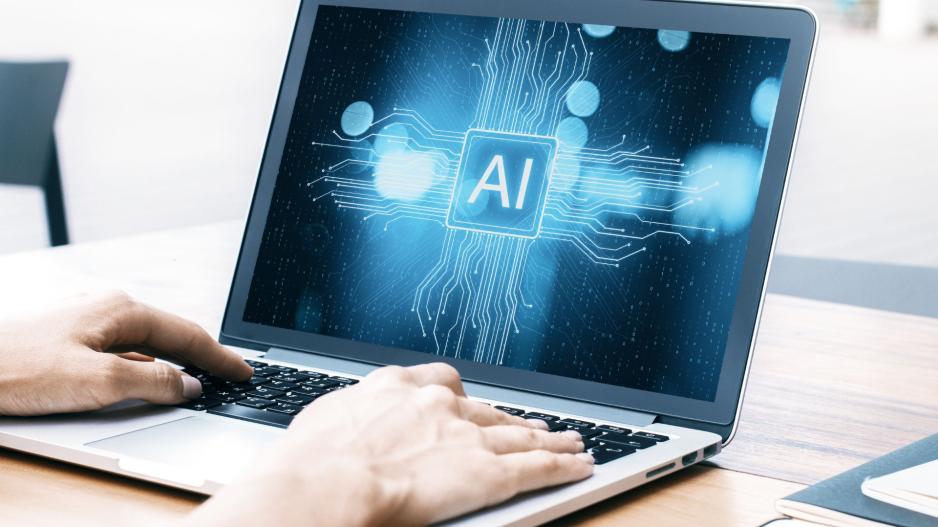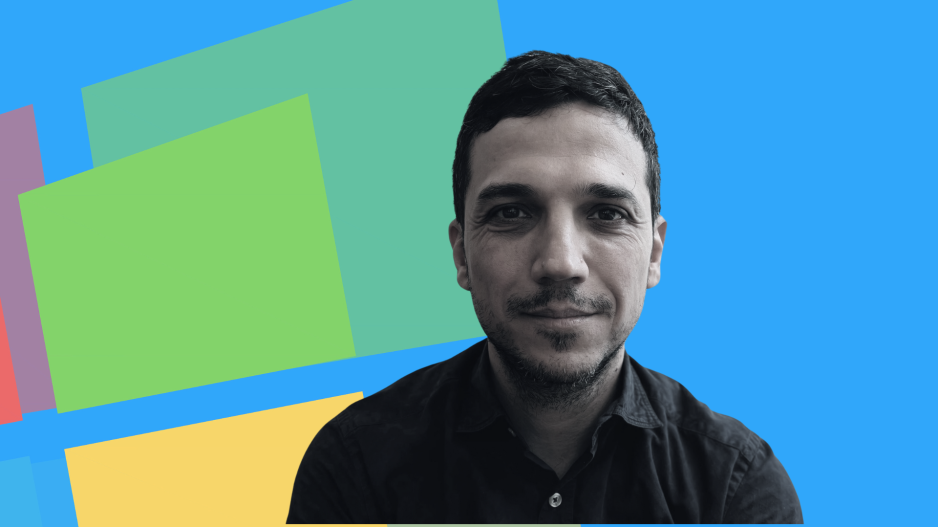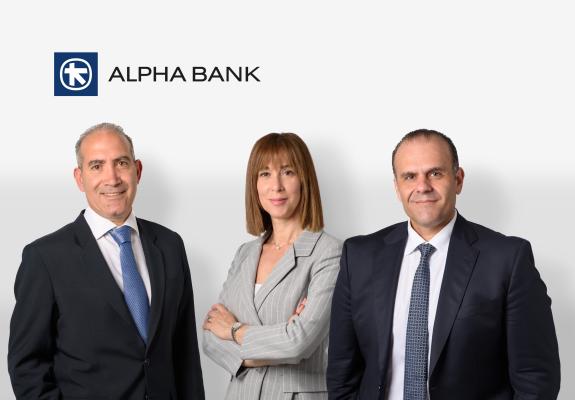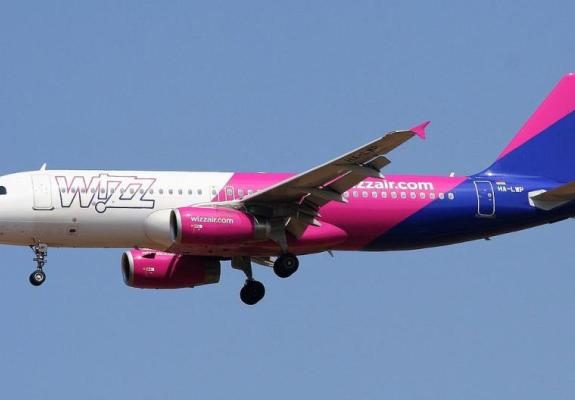Stavrinos Kyriakou: "We Need a National Startup Strategy to Build a Supportive Ecosystem"
Startups and Breadth ISVs Ecosystem Lead at Microsoft Southeast Europe Speaks to FastForward About His Tech Journey, the Cypriot Ecosystem, and the Next Big Trends
Growing up in the 90s, playing on his Nintendo Famicom, browsing the web in internet cafes, and learning to code in BASIC on his brother's Amstrad CPC, Stavrinos Kyriakou developed a strong relationship with technology from his teenage years. This passion led him naturally, as he puts it, to Microsoft, where he works today.
Throughout the interview, it's clear that his early fascination with technology, which began in his youth and continues to this day, has not lost its romantic appeal. "I am lucky to have the opportunity to do something that excites me so much as my daily job," he says.
Equally interesting as his tech journey is his perspective on the Cypriot tech ecosystem, its comparative advantages, and its challenges. Recognizing the huge market for software and IP development organizations across Southeast Europe, including Cyprus, Stavrinos believes that the country's mindset could shift more towards producing IP and innovation rather than just providing services and product integration. He also discusses how the island can build an ecosystem that provides the supporting infrastructure for all the components a startup needs to succeed.

Well, I wouldn’t say it was a specific inspiration that drove me to technology and AI. It was more of a mindset or disposition towards it. Growing up in the 90s, I was lucky enough to witness technology as it was entering and changing the people’s everyday lives. As a teenager, I enjoyed playing on my Nintendo Famicom. My brother had an Amstrad CPC on which I learned to code in BASIC, and I spent a lot of time in internet cafes browsing the primitive internet. Technology has always fascinated me; I am lucky to have the opportunity to do something that excites me so much as my daily job.
Growing up in the 90s, I was lucky enough to witness technology as it was entering and changing people’s everyday lives.
Joining Microsoft was a natural progression. As a young professional, I was one of the few Microsoft Certified Professionals on Windows Server. In my roles at various organizations, I often took on the position of Microsoft expert. I focused on Microsoft’s technology and, when the right time came, I was honored to become a member of the team.
My role and responsibilities have evolved significantly over the past 25 years. I started in user support roles, moved on to systems engineering, cloud architecture, and now I am applying my knowledge from a business development and strategy-building position. My journey has given me a multifaceted perspective on the technology industry, which is critical for my current responsibilities.
Through our research, we see a huge market for software and IP development organizations across Southeast Europe, including Cyprus. This includes both newly founded organizations like startups born in the cloud and older software houses adopting a more modern approach. Our goal is to help these organizations maximize their potential by utilizing Microsoft’s AI and cloud services and programs dedicated to startups and ISVs, namely “Microsoft for Startups: Founder’s Hub” and “Microsoft ISV Success”.
Our long-term strategy is to activate the ecosystem, enable technology adoption, and prepare the innovative technology organizations of tomorrow. I orchestrate various resources across the region to achieve this. My day-to-day involves engaging with startups, contributing to their strategic decisions, conducting technical and architectural workshops, working with ecosystem players like VCs and agencies, and delivering presentations at different events. This role is both fun and inspiring as I get to meet and talk with people who are at the forefront of creating the technology everyone uses.
Having been in the market for over 20 years, I’ve gained a holistic perspective by sitting in different positions. I’ve worked for customers, technology partners, and now at a technology vendor. Cyprus has a deeply rooted entrepreneurial culture. Cypriots are hard-working and reliable professionals. Most tech organizations in Cyprus started from entrepreneurial initiatives and became successful through the commitment and hard work of their founders. The size of our market also enables easier collaboration and creates community bonds. People know and work with each other more easily.
Cyprus has a deeply rooted entrepreneurial culture. Cypriots are hard-working and reliable professionals
However, while we do take the initiative to start businesses, I think our mindset could shift more towards producing IP and innovation rather than just providing services and product integration. We have success stories from startups that have created world-class IP, and there’s an opportunity to have more, especially with the rapid evolution of AI providing fertile ground for innovative solutions.
Startups need more than just capital and investments to flourish. While money is important, it’s not the only component. In my opinion, there are three main components that influence a startup’s success: technology development, business management, and funding. All three need to be of high caliber and are part of an investment circle. Successful startups create technologically coherent products, manage their business efficiently, and thus attract more funding. Investors are more eager to invest when they see an ecosystem of startups creating excellent technology and managing their businesses well.
Successful startups create technologically coherent products, manage their business efficiently, and thus attract more funding
I think we should take a step back and ask, how can we build an ecosystem that provides the supporting infrastructure for all the components a startup needs to succeed? My assessment is that the state could act as the binding factor for the ecosystem providing that structure.
This can be done primarily by working more persistently on a national startup strategy. Important initiatives can include a national startup registry and a national startup authority, incentives for local startup incorporation and local talent hiring, even incentives for specific technology development like AI, biotech or sustainability solutions. A national startup authority can bring together in a collaborative umbrella ecosystem players like accelerators, universities, technology providers, private investors and others. Overall, we should work on enhancing the ecosystem in parallel with attracting funding and investments.
Microsoft’s flagship program for startups is “Microsoft for Startups: Founder’s Hub.” This is a nofunding-required, open-to-all digital accelerator that provides startups with everything they need to develop their solutions, establish their presence, and grow their business. Registration is free and can be done online through the program’s website. The program offers multiple benefits on two main pillars: enabling startups to develop their product and enabling them to run their business. Startups receive up to $150k in Azure cloud credits, access to Microsoft AI services, M365 licenses, Power Platform, Dynamics, LinkedIn, and more. Notable benefits also include OpenAI credits and GitHub Copilot licenses.
Despite being a large organization, local engagement has always been a crucial part of our strategy. In Cyprus, there are local resources that assist startups from both a technological and business perspective. Startups that reach out can always find someone to talk to, helping them onboard or resolve any queries.
On addition, Microsoft is present to partner with startups even after their graduation from the programs. Apart from being a technology provider, Microsoft is also an excellent business partner, partnering with software development organizations to enable their market reach and growth. A good example is the Microsoft marketplace which enables startups and software organizations to sell their solutions more easily to enterprise customers.
The next decade will be an exciting era of technological advancements and innovations. One of the major trends I see is the continued evolution and integration of artificial intelligence across various sectors. AI will become more sophisticated, with advancements in machine learning, natural language processing, and computer vision driving significant changes in industries such as healthcare, finance, education, and more. We will see AI being used to enhance decision-making, automate complex tasks, and provide personalized experiences in ways we can only begin to imagine today.
Sustainability and green technology will also play a crucial role in shaping the future. As the world comes to terms with climate change, there will be a greater focus on developing technologies that reduce carbon footprints and promote renewable energy sources.
These trends will not only transform industries but also have a profound impact on our daily lives
Overall, the next decade will be marked by rapid technological progress and innovation, driven by artificial intelligence. These trends will not only transform industries but also have a profound impact on our daily lives. While we are still in the process of understanding its impact and influence on businesses and society, at Microsoft, we ensure that we and our partners develop and apply the technology under a responsible AI framework. Fairness, reliability, security, inclusivity, transparency, and accountability are core components of our engagement with this new technology.







